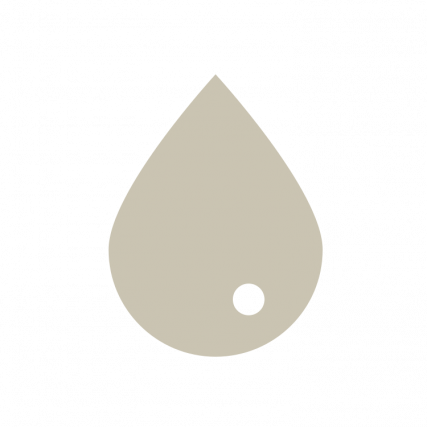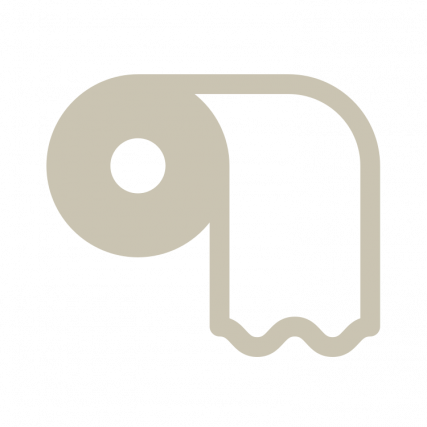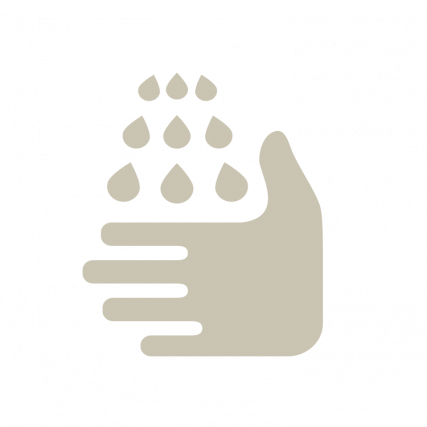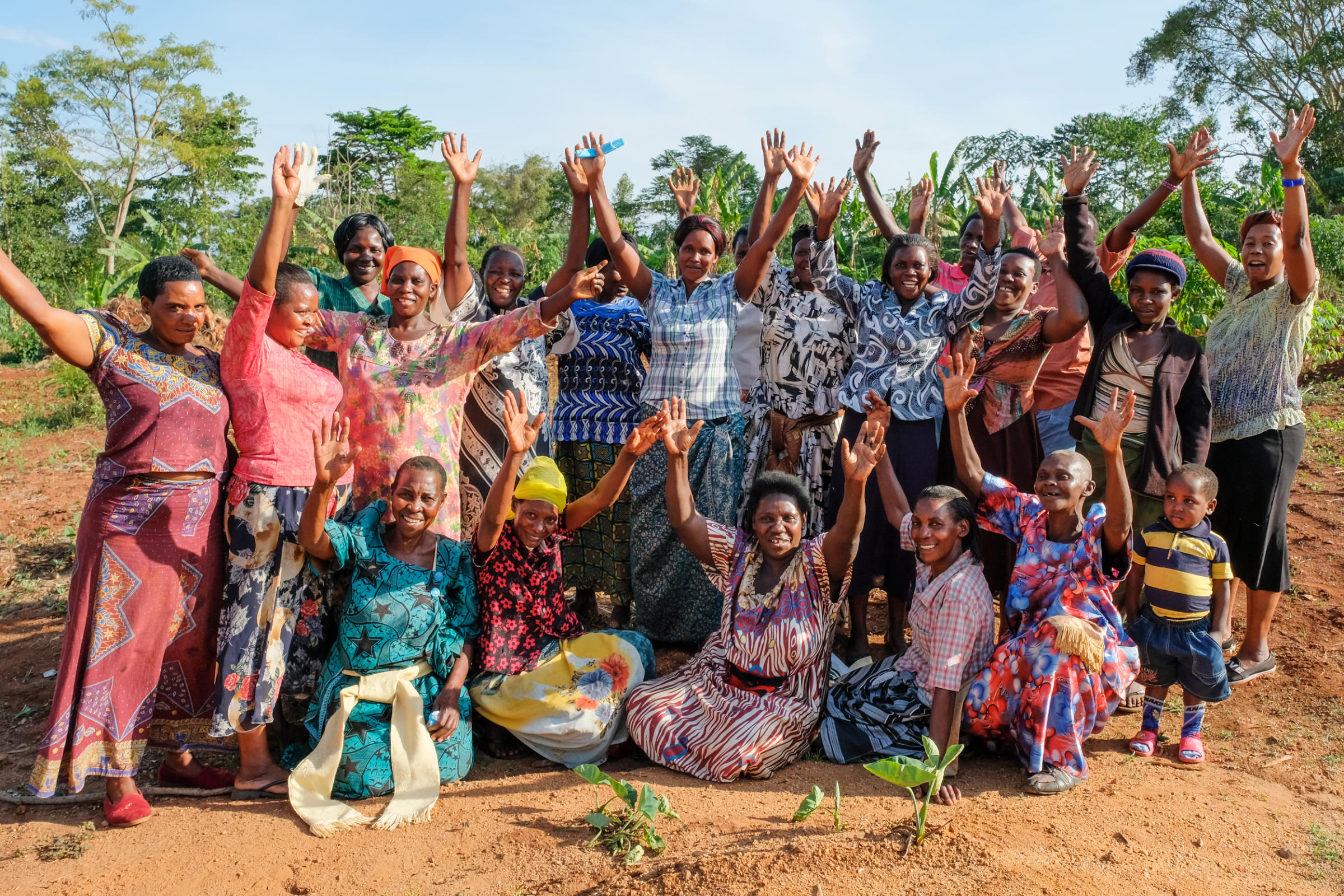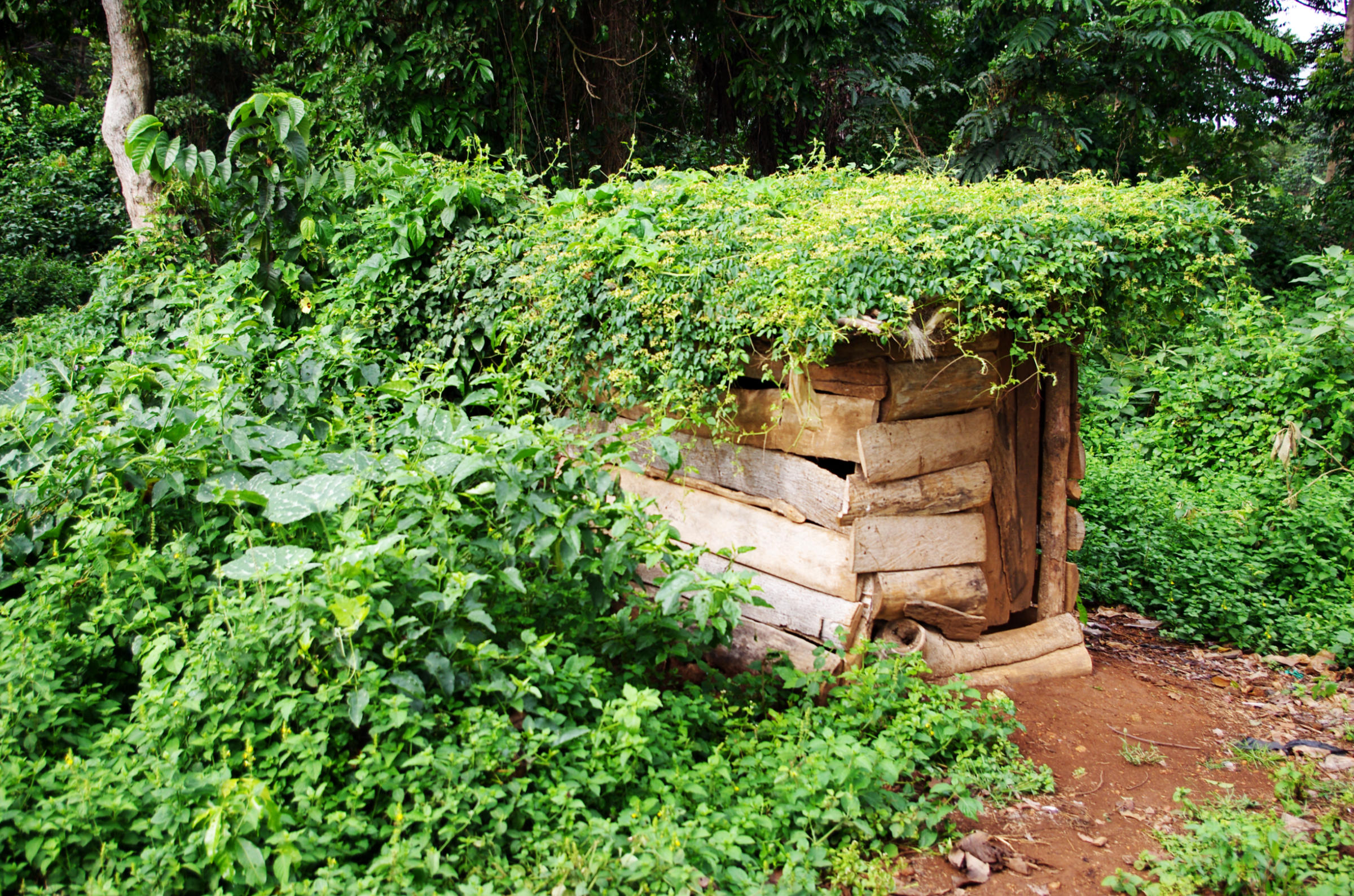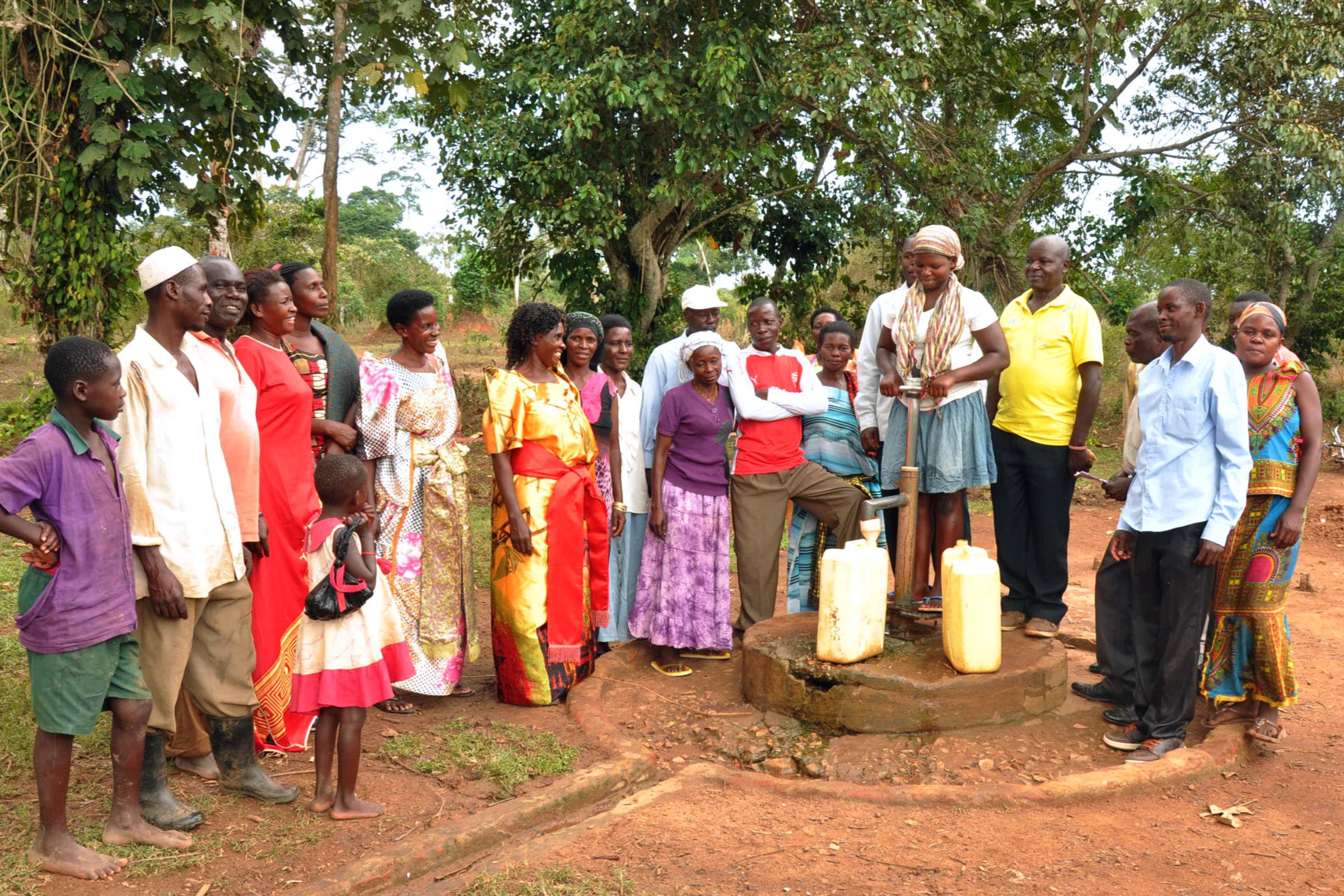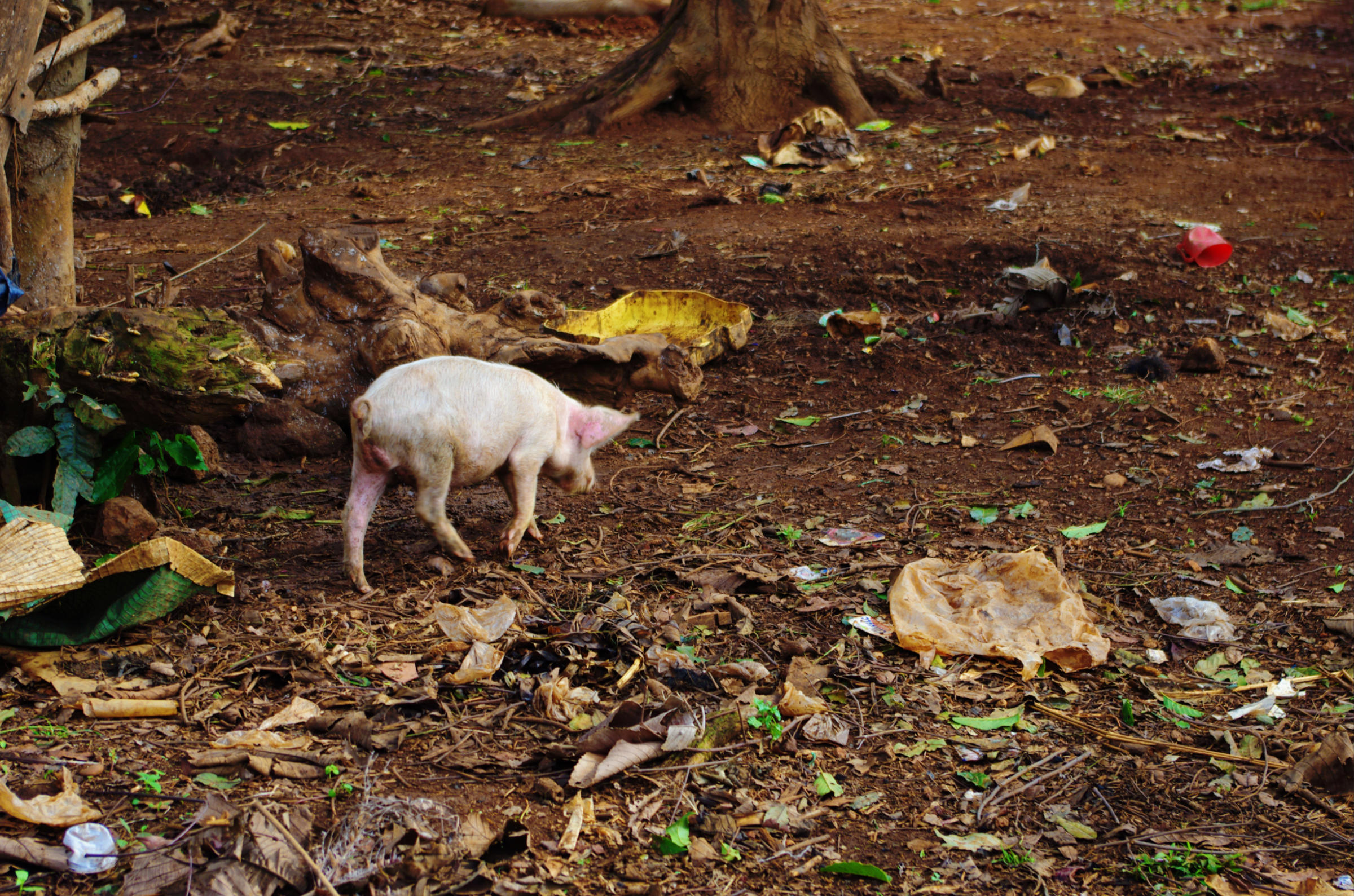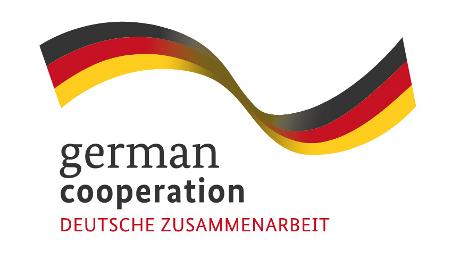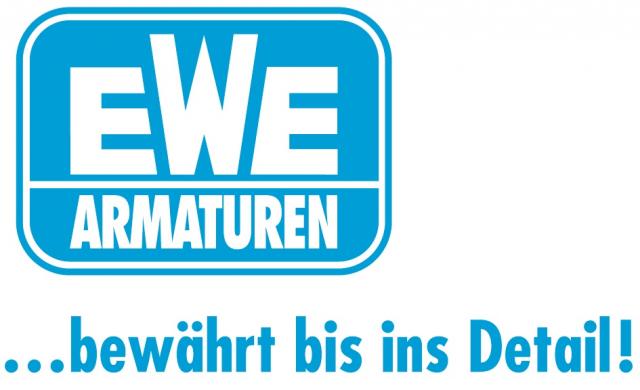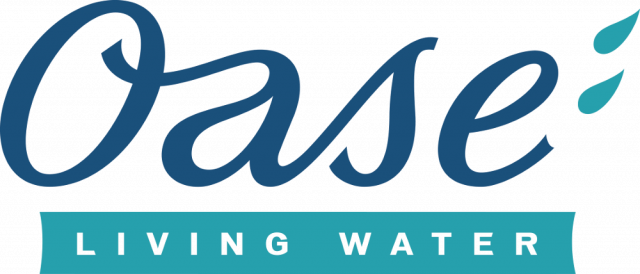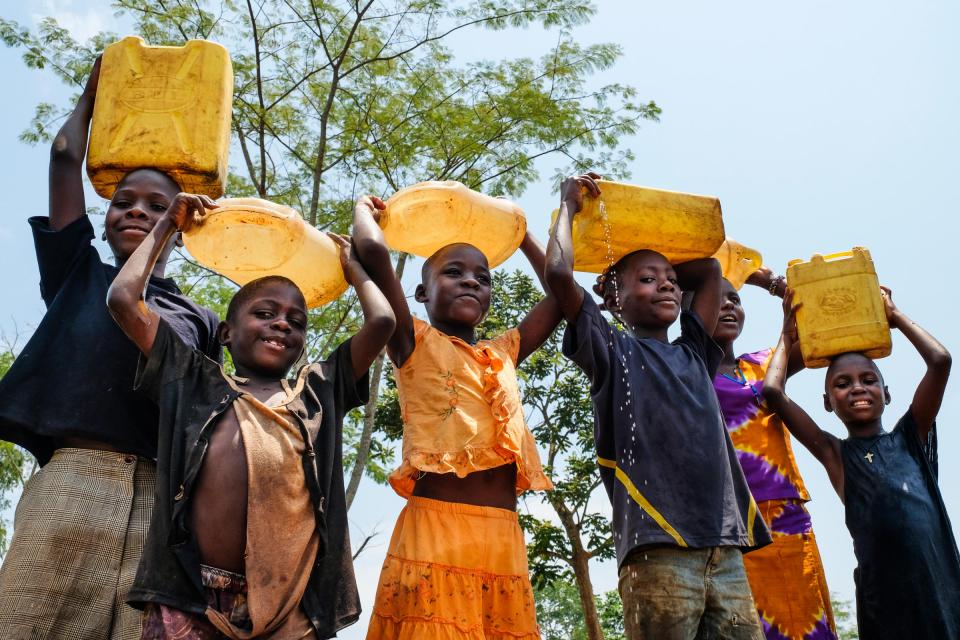
The ecosystem of Lake Victoria is highly endangered. Every day untreated industrial wastes, pesticides, fuel from boats and garbage are released into the lake. In addition, the northern shore is becoming increasingly populated. People from other parts of the country come to the lake with the hope of a secure livelihood. This influx further exacerbates the situation. In the areas of water, sanitation and hygiene, everything is lacking. The situation is at least as precarious in the inland villages. In the absence of safe water sources, people draw their water from ponds and open water points where the water quality is extremely poor.
Cooperation with KWDT, arche noVa Uganda partner
Since 2014 arche noVa has been working in the area in collaboration with the Ugandan organization Katosi Women Development Trust (KWDT). Thery are supporting a network of 29 women groups living in fishing and rural villages of Mukono District to have access to safe water sources, adequate sanitation and improve their hygiene practices.
Improving access to drinking water in fishing villages and rural communities
The lake is both a curse and a blessing for the people. While it promises an income, it can also make people sick. People often lack the knowledge about the consequences of the consumption of polluted water. However, those who have this knowledge cannot change their situation, because they have no money to buy safe water. Most families live on less than two dollars a day. KWDT and arche noVa have been working for more than six years to defuse the supply situation. Within the framework of the current project several public wells are built. In addition the construction and use of bio-sand filters to purify the water is promoted at household level. This intervention improves the quality of the water supply but also the availability reducing time and distances to fetch water every day.
Building public toilets in the villages
In some villages there is not a single toilet. The men, women and children mostly go outdoors. This so-called open defecation can be the cause of numerous diseases such as typhoid or bilharzia.
Before having a proper public toilet, open defecation was what everybody did and, especially during the rainy season, it was a nightmare. We suffered from typhoid, diarrhea and even bilharzia. Ever since arche noVa and KWDT helped us with toilets, there have been a lot of improvements on our landing site.
In different fishing villages and market places, on the banks of the Lake Victoria, we are building public toilets. The toilets are an important step towards health protection. However, the investment in toilets only becomes sustainable when someone takes care of the operation and maintenance of the facilities. This task is performed by the Toilet User Committees. Among other things, they have to organize the emptying of septic tanks, a tedious and unsafe task if you have to do it with shovels and buckets. Therefore this project goes one step further: a septic tank vehicle was purchased and personnel from KWDT and the communities were trained. Their clients are now the committees of the communities and a recovery system to collect money to cover the cost of the service is now in place.
Shower rooms protect from glances
In addition to public wells and toilets, gender-separated community showers are also part of the project. They are an important contribution to improving the hygiene conditions on site and give people dignity in everyday life. Women in particular feel uncomfortable when they practice their personal hygiene outdoors at the lake. The lake water also causes skin diseases. But washing in your own house is also an unpleasant procedure, where everything either has to be put away or gets wet. The keys for the new communal showers are managed by committee members. Everyone has to bring their own water from the well.
I am very happy that in Buleebi a room for showering was built. This has reduced the indecent bathing outdoors, on the lake shore, on verandas and in the houses. Often one could hear arguments among the neighbors about bathing near their house. Now everyone in the community can bathe safely at any time of day.
Waste management for a healthy environment
A huge threat to health is litter strewn around the villages. In most communities there is no organised garbage disposals. The trash is an additional burden for Lake Victoria which ultimately has negative effects on the fish population and therefore for the livelihood of most inhabitants of the district. So KWDT established waste disposal systems in each fishing village, dump sites and waste collection committees. These groups are trained and equipped with tools and protection gears. Organic waste has a special importance: it can be reused as fertilizer.
Corona prevention on all channels
Sharing information regarding the current pandemic, promoting safe behaviours, supporting soap and masks production, KWDT is contributing to protect the people in the remote villages around Lake Victoria by COVID 19 effects. As one of the first activities, information were prepared and translated into the local language, Luganda. Various communicational channels are in use to carry the information to the villages. These include radio broadcasts, peer to peer conversations using public and sport events. Children are also involved to inform other children and their families for example, via megaphone.
Women's power is the mainstay of the project
Every activity is coordinated by a female self-help group active in the community. Each group is supervised by arche noVa’s project partner KWDT. The women groups are the hotline into the communities. By a close coordination with them, KWDT is always up to date concerning the needs and sorrows of the beneficiaries. Infact they are involved in the development process from the beginning. The project strengthens equal rights and supports women and other vulnerable groups.They are motivated to take over responsibilities and get active in political processes.
Highlight: Training for hand pump mechanics
Our joint project opens up new fields of activity for KWDT and the participating women's self-help groups. In doing so, arche noVa is particularly interested in the transfer of WASH know-how. For example, we promote the production of liquid soap and the construction of sand filters. One of the highlights of our cooperation with KWDT is the training of the women to manage the septic tank vehicle and to become hand pump mechanics. 27 women and 9 men were trained in 2019 and 2020. One of the participants is Margaret Nakafu from Luyobyo. The video shows how she repairs a well.
Women of vigour
Donate for this project
Project Overview
Contribution to improved living conditions in the fisher villages in Mukono district at Lake Victoria, Uganda
The objective is primarily the improvement of the access to clean and secure drinking water as well as an adequate sanitary and hygiene supply for the rural fisher communities by the development of infrastructure. Another important aspect of the project is the empowerment of the communities’ structures and especially the strengthening of women in the region.
The project’s target group are people in the fisher communities at Lake Victoria’s shore in Mukono district. These people are especially dependent on support. The inhabitants of those villages often are excluded and marginalized. In many cases they are not able to improve their living conditions by themselves. Women self-help groups play a key role as implementing partner.
- Construction of shallow wells and boreholes in fishing and rural villages
- Construction of rainwater harvesting tanks at schools
- Construction of bio sand filters to improve the quality of the water at family level
- Construction of communal latrines in fishing villages and market places
- Construction of communal showers in fishing villages
- Waste management systems at village level
- Capacity building and awareness campaigns on water, sanitation and hygiene promotion
- Training for Water and Toilet Committees, hand pump mechanics, Waste Management groups
- Lobby work with the District Authorities to improve the WASH conditions of the fisher communities at local level
Katosi Women Development Trust (KWDT)
Hilfswerk der Deutschen Lions, Lions Distrikt MN 111, Lions Club International Foundation
OASE GmbH
LeFee Werbeagentur GmbH
Wilhelm Ewe GmbH & Co. KG
Private donors

